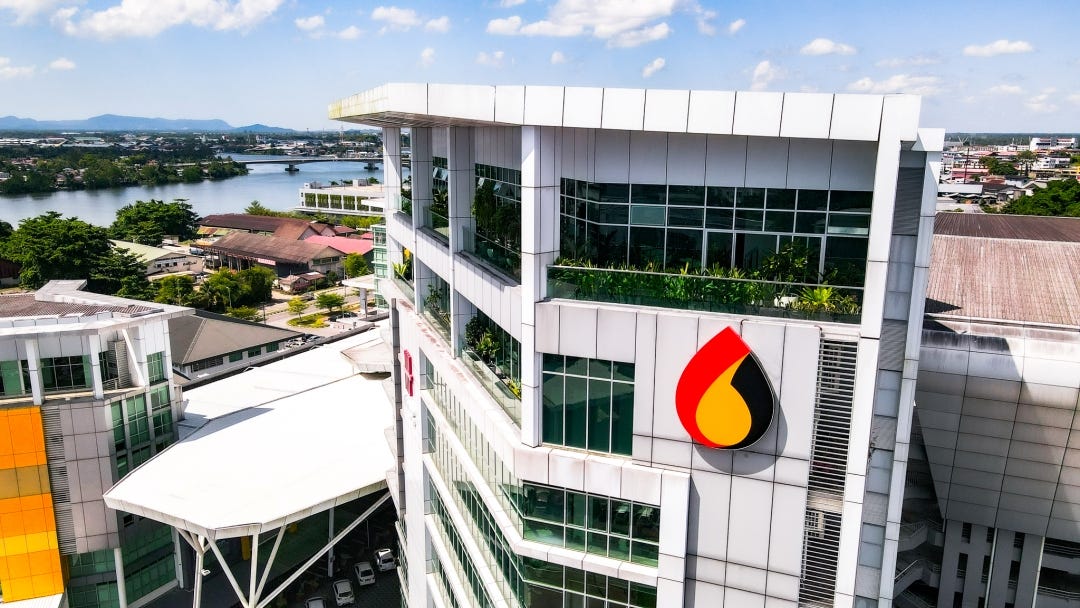Transformation of MIER: From a Troubled Think Tank to PETROS's Strategic Powerhouse
MIER's Transformation for PETROS: A Strategic Move by Sarawak to Fuse Legacy with the State’s Economic Aspirations
By Ibrahim Baba
The transformation of the Malaysian Institute of Economic Research (MIER) into a dedicated think tank for PETROS, the state-owned oil and gas company of Sarawak, is no coincidence—it is a strategic step that bridges institutional legacy with regional aspirations. Over decades, MIER has cultivated a close relationship with the Sarawak Government, establishing itself as a trusted partner in economic research and policy advice. This is not merely about proximity or convenience but about trust built through years of collaboration. The appointment of MIER's former Executive Chairman to a senior position at UNIMAS, combined with the presence of a prominent Sarawakian as the current Chairman of MIER's Board, underscores the institution’s deep integration into Sarawak's power structure. Further strengthened by the involvement of respected figures such as Tan Sri Wilson Dandut, the intricate strategy behind this move becomes increasingly evident.
This is more than just a collaboration—it is a meticulously planned synergy. PETROS is not just a company; it is a symbol of Sarawak’s economic independence and a cornerstone of the state’s efforts to achieve greater autonomy. By incorporating MIER into its ecosystem, Sarawak effectively strengthens its local intellectual capacity to manage its most critical strategic resources. MIER’s economic expertise, paired with the leadership of Sarawakian figures experienced in both government and corporate realms, creates an ideal blend of capability and commitment. This move reflects Sarawak’s vision of leveraging local talent and trusted allies to craft policies that are not only ambitious but also rooted in the state’s unique socio-economic landscape.
In a world where states and regions are increasingly becoming geopolitical players, Sarawak’s decision to integrate MIER demonstrates how legacy institutions can be transformed into bespoke engines for local growth. This is not merely about redefining MIER’s mission—it is a signal that the future of policy innovation lies in regional specialization, where think tanks evolve from ivory towers into precision tools for driving national agendas.
The decision to repurpose MIER as a think tank for PETROS and Sarawak comes at a crucial moment, breathing new life into an institution struggling to survive. Staff salaries reportedly went unpaid for four months, office rent was overdue, and the physical office only opened when absolutely necessary, with staff working from home to save costs. These financial difficulties raised serious questions about MIER’s sustainability, but this new direction may mark the beginning of much-needed change.
Adding to the complexity, MIER has heavily relied on its strategic partnership with the KSI Strategic Institute for Asia Pacific to remain relevant. Collaborations, such as the MIDA-MIER Monthly Business Conditions Survey, are inspired by KSI generated publications. This dependence highlights MIER’s reliance on external support to maintain output—a strategy reflecting the challenges of operating with limited internal resources.
Now, with Sarawak stepping forward to reorient MIER towards supporting PETROS and the state’s economic goals, the institution has the opportunity to rebuild its foundations. This move not only provides financial relief but also aligns MIER’s work with a clear strategic purpose, offering renewed direction and relevance.
The restructuring of MIER as a think tank for PETROS is more than just a rescue of a troubled institution—it is a dramatic shift that might finally close the chapter on turbulent years. MIER’s relationship with the current government has never been smooth. The tensions stem from Tan Sri Sulaiman Mahbob’s role as the head of Muhyiddin Yassin’s National Recovery Council (NRC), which alienated the institution from the present administration. Additionally, an extraordinary move by former MITI Minister Azmin Ali to reappoint Sulaiman Mahbob as MIER Chairman for a second term—something rarely done—raised eyebrows and underscored the political minefield MIER had to navigate.
Yet, as the saying goes, "All’s well that ends well." For MIER, burdened with unpaid salaries, overdue rent, and an uncertain future, this collaboration with PETROS provides a much-needed conclusion to a tumultuous chapter. And for PETROS and Sarawak, it marks a fresh beginning—a strategic move that harnesses MIER’s legacy and expertise for the state’s economic agenda. This transformation might just be the best outcome for both parties, turning past challenges into a foundation for future success.
-————————————————————-
Ibrahim Baba monitors East Asian and Southeast Asian affairs for Political Risk Consultancies.
Subscribe Below:



